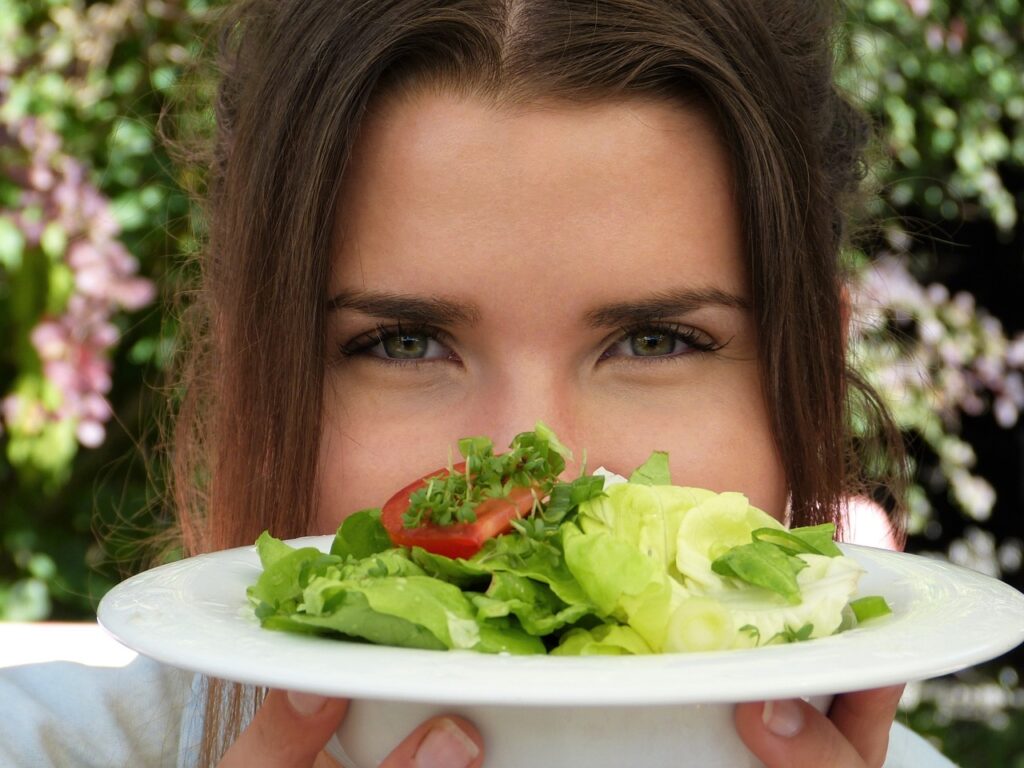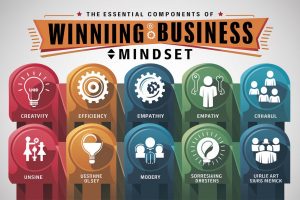Detoxification is a concept that has gained significant traction within the realms of health and wellness, and for good reason.
It embodies the process of purging toxins and stresses that accumulate in both the physical body and the mind.
While the body is equipped with natural detoxification systems like the liver, kidneys, and skin, modern lifestyles can introduce more toxins than the body can efficiently handle.
Understanding the synergy between the mind and body is crucial when adopting a holistic approach to detoxification.
This methodology not only focuses on improving dietary habits and increasing physical activity, but also incorporates mind-body practices such as meditation, yoga, and adequate sleep to support mental and emotional well-being.
These combined efforts can lead to improved energy levels, a bolstered immune system, and a greater sense of balance and clarity.
Hydration plays a central role in any detox plan, aiding the body in the elimination of waste products.
Additionally, the strategic use of supplements and herbs can support the body’s natural detoxification pathways.
It is, however, important to proceed with caution and be aware of potential risks, especially when making significant lifestyle changes or when dealing with pre-existing health conditions.
Key Takeaways
- Holistic detoxification supports both physical and mental health.
- Adequate hydration, sleep, and mind-body practices are essential.
- Careful consideration of supplements and lifestyle changes can enhance benefits.
Understanding Detoxification
Detoxification is a vital process by which the body eliminates harmful substances.
This section explores the principle behind holistic detox and the body’s natural detoxification mechanisms.
The Concept of Holistic Detox
Holistic detox considers the person as a whole, focusing on physical, mental, and emotional well-being.
It extends beyond mere symptom treatment and emphasizes the interconnectedness of the body’s systems in achieving overall health.
Holistic detox approaches often incorporate dietary changes, stress reduction techniques, and natural supplements that support the body’s ability to cleanse itself.
Natural Detoxification Processes in the Body
The Body’s Main Detox Organs:
- Liver: Filters toxins from the blood and chemically converts them to water-soluble forms that can be excreted.
- Kidneys: Remove toxins by filtering the blood and excreting waste as urine.
- Lymphatic System: Cleanses the interstitial fluids and returns proteins and other substances to the bloodstream.
Detoxification processes in the body are continuous and ensure the normal functions of cells and organs.
They eliminate toxins that one encounters through food, water, air, and metabolic processes.
The liver, kidneys, and lymphatic system play crucial roles in this natural detox, working together to rid the body of harmful substances and maintain health.
Benefits of Holistic Detox
Holistic detoxification goes beyond the physical aspects of cleansing, aiming to rejuvenate the body and mind.
It’s designed to promote overall well-being, addressing both tangible and intangible elements of health.
Physical Benefits
- Stress Reduction: Engaging in activities such as yoga and meditation, often integral to holistic detox programs, can significantly decrease stress levels.
- Energy Boost: Eliminating toxins from the body can lead to a noticeable increase in energy, as the body’s systems begin to function more efficiently.
- Improved Skin Health: Dietary changes focusing on whole foods can improve skin clarity and vitality, reflecting the internal state of one’s physical health.
Mental and Emotional Benefits
- Mental Clarity: Reduction in the consumption of processed foods and stimulants leads to sharper mental focus and clearer thinking.
- Emotional Recharge: Taking time to detox holistically can provide people with a sense of emotional renewal, as it often includes practices that support mental health.
- Sustained Energized Feeling: Regular incorporation of holistic detox practices can lead to long-term feelings of being energized, as one’s lifestyle starts aligning with their body’s natural rhythms.
Identifying Toxins and Sources
Toxins come from various sources, both environmental and dietary, and their identification is the first step in the detoxification process.
Common Environmental Toxins
Environmental toxins include pollutants and heavy metals that people commonly encounter in their daily lives.
Pollutants are often in the air in urban areas due to vehicle emissions and industrial discharge.
Heavy Metals such as lead, mercury, and arsenic can be found in contaminated water supplies or certain fish species.
Dietary Sources of Toxins
The standard diet may include a variety of harmful substances, with processed foods, alcohol, and sugar being primary concerns.
-
Processed Foods: These often contain preservatives, artificial flavorings, and colorings that can act as toxins in the body.
-
Alcohol: Regular consumption of alcohol can burden the liver, which is central to detoxification.
-
Sugar: High sugar intake can lead to an increase in inflammation and can disrupt normal metabolic processes.
Components of a Detox Diet
A detox diet focuses on incorporating nutrient-dense foods that support the body’s detoxification processes while eliminating substances that may impede it.
Foods to Embrace
Fruits and Vegetables: Detox diets heavily emphasize the intake of fruits and vegetables. These are rich in essential vitamins, minerals, and antioxidants which are crucial for eliminating toxins from the body. Examples include leafy greens and berries.
- Berries: They should be a key component as they are high in antioxidants.
- Leafy Greens: Kale, spinach, and other greens contribute to liver health.
Whole Grains: Consuming whole grains provides the body with fiber, which can help in removing waste.
- Quinoa, oats, and brown rice are great options for maintaining a stable energy level.
Lean Protein and Healthy Fats: Lean protein sources and healthy fats are essential for rebuilding tissues and promoting cellular health.
- Nuts, seeds, and avocados offer healthy fats.
- Include fish and skinless poultry for lean protein.
Herbs, Spices, and Beverages: Certain herbs, spices, and beverages can support detox processes.
- Green tea is known for its detoxifying properties.
- Turmeric and ginger add flavor and are renowned for their anti-inflammatory benefits.
Water: Above all, adequate hydration with water facilitates the removal of soluble toxins.
Foods to Avoid
Detox diets typically recommend reducing or eliminating certain types of foods that may burden the body’s detoxification systems.
Refined Carbohydrates and Added Sugars: These can spike blood sugar levels and provide little nutritional value.
- Examples include white bread, pastries, and sodas.
Processed Foods: They often contain a range of additives and preservatives that the body may need to detoxify.
- Prepackaged meals and snacks should be limited.
By focusing on whole, natural foods and excluding processed items and added sugars, individuals can support their body’s natural detoxification functions and improve overall health.
Physical Activities for Detox
Engaging in physical activities is integral to promoting the body’s natural detoxification processes.
They encourage sweating, stimulate digestion, and enhance kidney function.
Exercise and Fitness Routines
Regular exercise is essential for maintaining overall health and facilitating detoxification.
Cardiovascular workouts such as running, cycling, and swimming increase the heart rate and circulation, promoting sweating and the removal of toxins through the skin.
Fitness routines often incorporate a mix of aerobic and strength training, which can aid in digestion and boost metabolism, further supporting the body’s ability to detox.
-
Aerobic Exercises: Enhances circulation and increases sweating.
-
Strength Training: Improves metabolic rate and supports muscle function.
Yoga and Flexibility Exercises
Yoga offers a holistic approach to detoxing, combining physical exercise with breathing exercises to support the body’s cleansing processes.
Certain yoga poses are specifically beneficial for detoxification, as they massage and stimulate the kidneys and other digestive organs, aiding in the elimination of toxins.
-
Twisting Poses: Compress and massage the abdominal organs.
-
Inverted Poses: Boost lymphatic drainage and circulatory functions.
Breathing exercises associated with yoga, such as pranayama, can enhance oxygen exchange and further support the detox process.
Mind-Body Practices For Detox
An effective detox regimen involves integrating mind-body practices that enhance both physical and mental well-being.
These practices can reduce stress, improve relaxation, and bolster the body’s detoxifying abilities.
Meditation and Mindfulness
Meditation is a powerful tool for detoxifying the mind.
It helps individuals manage stress and cultivate a state of calmness by focusing their attention and eliminating the stream of jumbled thoughts.
Mindfulness meditation, in particular, encourages one to become acutely aware of their present experience, fostering a sense of tranquility.
Studies have shown that regular meditation can lead to long-term beneficial changes in brain function and may reduce symptoms of certain disease conditions.
- Stress Reduction: Meditation initiates the body’s relaxation response, counteracting stress.
- Increased Energy: Mindfulness can lead to a more energized state as one learns to focus on the present.
Deep Breathing and Relaxation Techniques
Deep breathing exercises are a cornerstone of self-care and relaxation practices.
When practiced correctly, they can enhance the body’s natural detoxifying processes by improving oxygen exchange and stimulating the lymphatic system.
- Toxin Release: Deep, rhythmic breaths can help release toxins from the body, supporting detox efforts.
- Technique: Diaphragmatic breathing, or “belly breathing,” maximizes lung capacity and can be particularly effective for stress reduction.
Deep breathing is not only restorative but also an active process that enhances cellular detoxification and promotes a balanced state of mind.
It can be easily incorporated into everyday life and paired with other activities such as yoga or journaling for a holistic approach.
Hydration and Its Role in Detox
Adequate hydration is pivotal for detoxification. It aids the kidneys in filtering toxins and supports overall body function.
The Importance of Water Intake
Water serves as the body’s natural detoxifier.
It helps flush out toxins and waste products, maintaining kidney health by assisting these vital organs in their filtration process.
Regular water consumption is essential for carrying nutrients to cells, as well as for helping cells to remove waste.
A simple guidance for adequate water intake is eight 8-ounce glasses a day, which is roughly 2 liters, or half a gallon; however, individual needs can vary.
Detox Teas and Hydration Formulas
Detox teas often combine hydration with herbal ingredients known to support detoxification.
Green tea, for example, is rich in antioxidants and may enhance the body’s natural detoxification processes.
Other herbal teas and hydration formulas may include ingredients such as milk thistle or dandelion, which have been traditionally used to support liver function and toxin elimination.
It’s important to note that while these teas and formulas can be a supplemental aid in a detox regime, they should not replace water intake.
Choosing a detox tea or a hydration formula should be done with careful consideration of the ingredients and their quality.
The Role of Sleep in Detoxification
Sleep is vital for the body’s ability to detoxify and rejuvenate.
During rest, the body actively removes toxins and restores mental clarity, making sleep a cornerstone of holistic detoxification processes.
Sleep and Recovery
Sleep enables the body’s natural regeneration processes.
A critical component is the glymphatic system, a network in the brain that clears out waste from the central nervous system.
It works predominantly during sleep, removing brain toxins associated with neurodegenerative diseases.
Inadequate sleep can lead to a buildup of these toxins and contribute to symptoms such as fatigue, poor cognitive function, and reduced mental clarity.
The detoxing effect of sleep on the brain and body is significant, as it helps to maintain overall health and well-being.
Improving Sleep Quality
Improving sleep quality is essential for effective body and mind detoxification.
Key strategies include maintaining a regular sleep schedule, creating a restful environment, and avoiding caffeine and electronic devices before bedtime.
Incorporation of relaxation techniques such as meditation or deep-breathing exercises can also enhance the quality of sleep, further promoting the elimination of toxins and aiding in recovery and recharge.
To maximize the detoxifying benefits of sleep, one should ensure that they are not only getting enough hours of rest, but also that the sleep is deep and uninterrupted.
Supplements and Herbal Aids
In holistic detox, individuals often seek the support of various supplements and herbal aids to promote the body’s natural detoxification processes.
Antioxidants such as Vitamin C and glutathione play a vital role in combating oxidative stress and aiding in the elimination of toxins.
Vitamin C, abundantly found in fruits and vegetables, is known for its immune-boosting properties and as a co-factor in the production of glutathione, the body’s master antioxidant.
Glutathione itself helps in the breakdown of toxins and is essential for liver function, where detoxification primarily occurs.
Turmeric, recognized for its active ingredient curcumin, has anti-inflammatory properties and supports liver health.
Ginger is another herb lauded for its gastrointestinal cleansing effects.
The principles of Ayurveda utilize a variety of herbs and substances to cleanse the body while balancing the mind and spirit.
These may include traditional formulations that contain detoxifying herbs, or the use of laxatives as a means to cleanse the digestive tract.
Herbal teas are also a common aspect of an Ayurvedic detox regimen, often containing a blend of herbs that support digestive health and detoxification.
When considering supplements and herbal aids, it’s crucial to seek quality sources and, if possible, the guidance of a healthcare professional, as efficacy and safety can vary.
Detox and Lifestyle Changes
Detoxification is not a single action but a comprehensive approach involving a series of lifestyle changes and behavior adjustments that promote overall well-being.
Creating a Sustainable Detox Lifestyle
To foster a sustainable detox lifestyle, one must incorporate dietary modifications and routine practices aimed at enhancing the body’s natural detoxification processes.
Diet is crucial, and focusing on whole foods like fruits, vegetables, and grains can significantly aid the body’s detox pathways.
Hydration is equally important; consistent water intake can help flush toxins from the system.
In addition to dietary changes, implementing regular exercise—such as daily walking—supports the body’s detox organs through increased blood flow and sweat.
Incorporating meditation and music may improve mental detoxification by reducing stress and elevating mood.
Long-Term Behavioral Adjustments
Long-term success in detoxification hinges on behavioral changes that become permanent parts of one’s lifestyle.
Regular sleep patterns are essential, allowing the body to repair and regenerate.
A digital detox can reduce mental clutter, while journaling assists in emotional processing and stress management.
Cleaning one’s living space can eliminate toxins in the environment for a more holistic approach to detoxification.
Each of these elements contributes to a sustained detox lifestyle, promoting health and vitality.
Addressing Potential Risks
When engaging in holistic detox practices, it’s crucial to consider potential health risks, especially those associated with extreme approaches. Below are specific areas of concern and advice on how to navigate them safely.
Risks Associated with Extreme Detoxing
Fasting can lead to muscle loss and nutritional deficiencies if done improperly.
They must factor in their current health status and any medical conditions before starting a fast.
Laxatives, often used in detoxes, can cause dehydration and disturb electrolyte balance when overused.
In severe cases, they could lead to harmful gastrointestinal issues.
Cold water cleanses, although popular, may shock the system and negatively affect those with certain diseases or medical conditions.
How to Detox Safely
One should always start with a diet that supports their body’s natural cleansing processes.
This includes consuming plenty of fruits, vegetables, and whole grains rich in fiber.
It’s also advisable to consult with healthcare professionals before beginning any cleanses.
They can guide on how to safely detox based on individual health needs.
Frequently Asked Questions
This section provides clarity on common queries regarding holistic detox, focusing on dietary choices and methodologies for cleansing both body and mind.
What are the top detox drinks for cleansing the body?
Detox drinks are concoctions that may support the body’s natural detoxification processes. Lemon water and green tea are often recommended for their potential to enhance liver function and hydration levels.
Which foods are best for natural toxin removal?
Foods high in antioxidants, fiber, and essential nutrients facilitate toxin elimination. Leafy greens, berries, and garlic are noted for their detoxifying properties, helping to support liver and kidney function.
Can you detox your body and mind simultaneously, and if so, how?
Simultaneous detoxification of body and mind is possible through practices that promote overall wellness. Methods like yoga and meditation can help reduce stress while supporting bodily detox processes.
What is the fastest way to detox at home?
A day-long focus on consuming whole, unprocessed foods and staying hydrated can assist in a rapid detox. Saunas and high-intensity exercise may also quickly support the elimination of toxins through sweat.
How can someone detox their body in just one day?
While a thorough detox takes longer, a one-day reset could involve a diet of fruit and vegetable juices, water, and herbal teas, complemented by light physical activity to stimulate circulation and toxin release.
What are effective overnight home remedies for detoxification?
Overnight detox methods include drinking detoxifying teas or water with lemon before bed to support digestion and toxin removal while sleeping. Adequate sleep itself is key to the body’s nightly natural detoxification processes.






